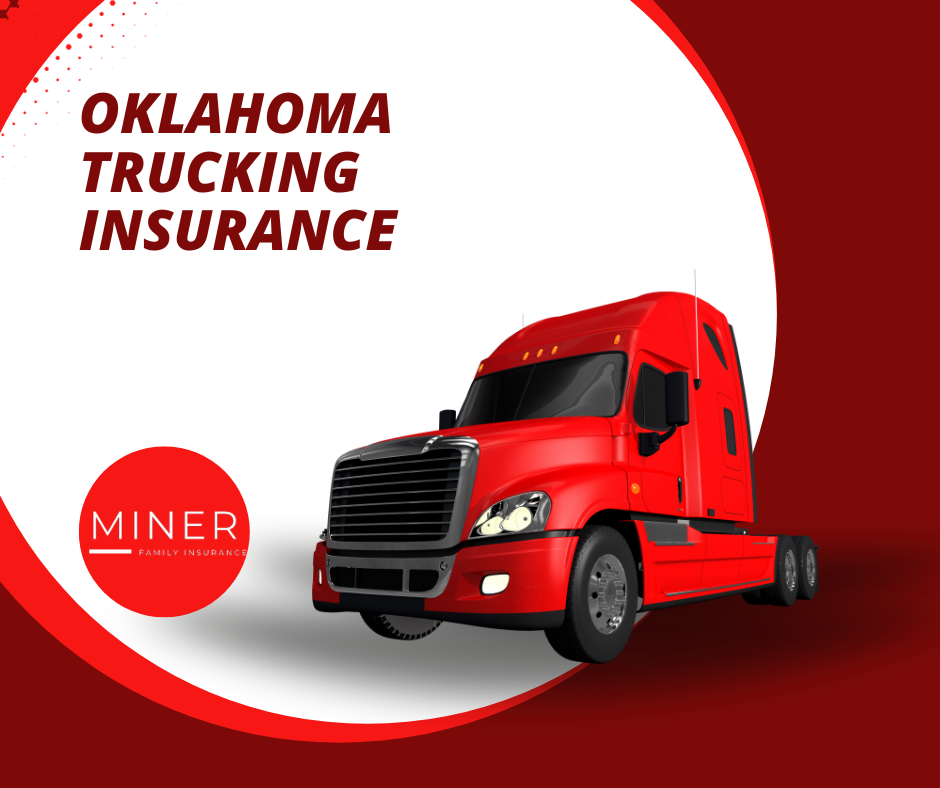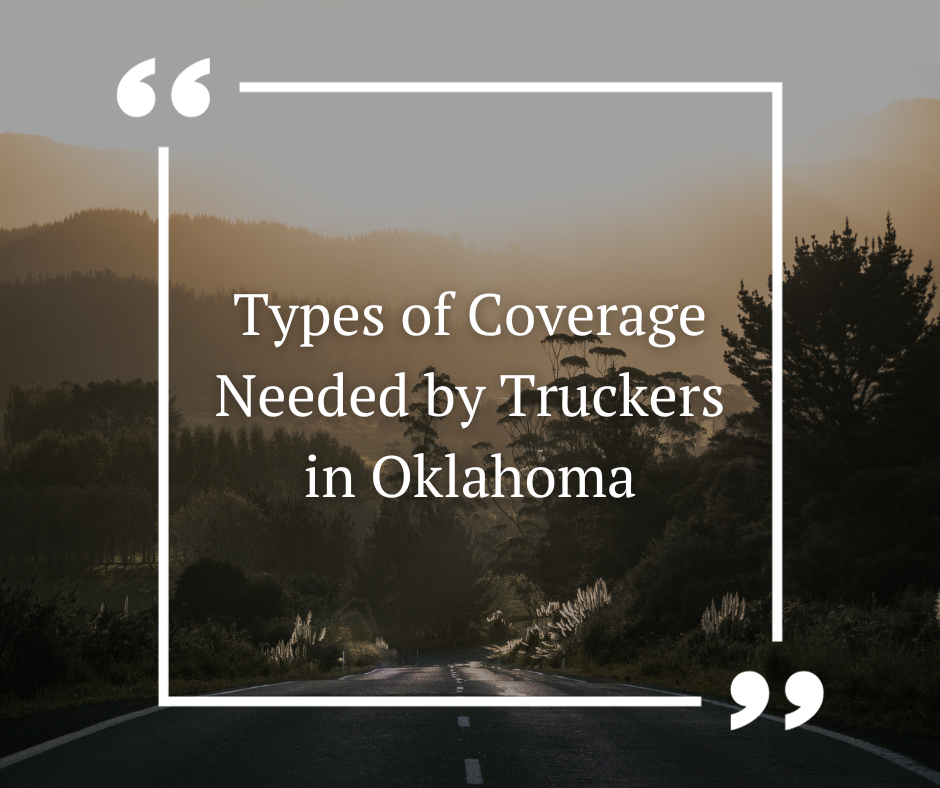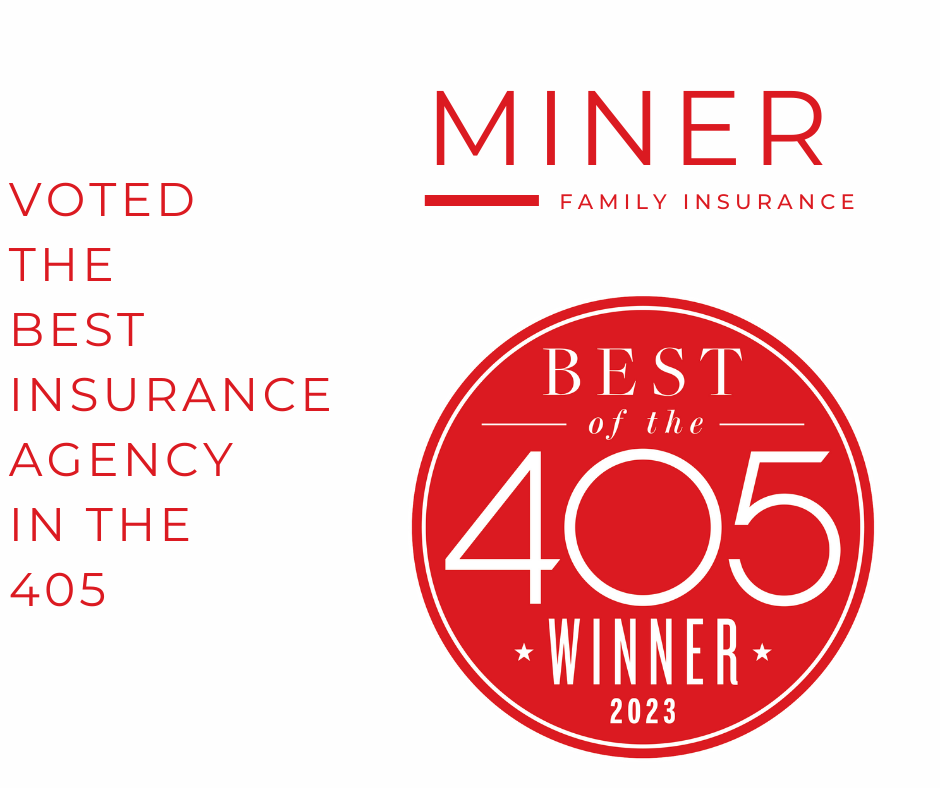What is trucking insurance?As someone new to the world of trucking, it's important to understand the various aspects of the industry, including trucking insurance. Trucking insurance is a crucial component of operating a commercial trucking business, ensuring that you, your vehicle, and your cargo are protected in the event of an accident or other unforeseen circumstances. Trucking insurance is a type of commercial auto insurance specifically designed to cover the unique risks and liabilities faced by trucking companies and owner-operators. This type of insurance provides coverage for both the truck and the cargo being transported, as well as liability coverage in case of damage to other vehicles or property, bodily injury, or other accidents on the road. Trucking insurance typically includes several different types of coverage, including primary liability, cargo insurance, physical damage coverage, and more. In addition to the basic coverages, trucking insurance also often includes specialized coverage options tailored to the specific needs of trucking operations, such as motor truck cargo insurance, bobtail insurance, trailer interchange insurance, and more. These additional coverages help to ensure that all aspects of your trucking business are protected, no matter what the road may bring. Why is it important for truckers in Oklahoma?As a new trucker in Oklahoma, it is essential to understand the importance of having proper commercial truck insurance. Operating a trucking business in Oklahoma comes with legal and financial risks, making it vital to have the right coverage in place. Without insurance, truckers face potential legal penalties and financial liabilities in the event of accidents, injuries, or property damage. Customized insurance is key for truckers in Oklahoma, as they may operate in cities such as Tulsa, Oklahoma City, and Lawton, each with its own unique risks and regulations. By having the right commercial truck insurance, truckers can protect their livelihood and assets while ensuring compliance with state and federal regulations. It's crucial for new truckers in Oklahoma to prioritize finding the right insurance coverage to safeguard their business and continue their success in the industry. Types of Coverage Needed by Truckers in OklahomaAs a new trucker in Oklahoma, it's important to understand the types of coverage needed to protect yourself and your business. From liability insurance to cargo coverage, being aware of the different types of insurance available can help you navigate the complexities of the trucking industry and ensure that you are adequately protected in case of any unforeseen events. Primary Liability InsuranceAs a commercial truck driver, obtaining primary liability insurance is a crucial step in your career. This type of insurance is required by law and provides coverage for bodily injury and property damage caused by your commercial truck in the event of an accident. The minimum coverage needed for primary liability insurance varies by state, but typically includes a minimum of $750,000 in coverage. Primary liability insurance covers bodily injury and property damage to others involved in an accident that is deemed your fault. This includes medical expenses, lost wages, and pain and suffering for injured parties, as well as repairs or replacement costs for damage to their property. However, it's important to note that primary liability insurance does not cover your own injuries or property damage to your own truck. That would require additional coverage such as personal injury protection and collision insurance. Understanding the requirements and coverage of primary liability insurance is essential for any commercial truck driver to ensure compliance with the law and protection in the event of an accident. Physical damage coverageWhen you're just starting out in the world of trucking, understanding the ins and outs of insurance coverage is crucial. One key concept to grasp is physical damage coverage, which extends to both collision and comprehensive coverage. This means that not only are you covered in the event of a collision with another vehicle, but you're also protected against non-collision damages such as vandalism or theft. Under a physical damage coverage policy, specific vehicles and drivers are covered for a variety of incidents and expenses. This can include damage to your truck, trailer, or any other equipment you may be hauling. It also applies to damage caused by natural disasters, falling objects, or even fire. Knowing the details of your policy and the specific coverage it offers is essential for any new trucker. Take the time to understand the ins and outs of physical damage coverage, and you can hit the road with confidence knowing that you're protected in a variety of scenarios. Uninsured/Underinsured motorist coverageTrucking can be a rewarding career, but it also comes with its own set of risks, especially on the road. One of the most important things to consider when starting out as a truck driver is the need for uninsured/underinsured motorist coverage. This type of coverage is essential because it protects you in the event that you are involved in an accident with a driver who does not have insurance or has insufficient coverage. If you were to be in an accident with an uninsured motorist, you could face significant financial impact, including medical expenses, property damage, and loss of income. Filing a claim with your insurance company for uninsured/underinsured motorist coverage can help you recoup these losses, but in some cases, you may need to sue the uninsured motorist to actually receive the coverage. Having uninsured/underinsured motorist coverage is crucial for protecting yourself against potential financial losses in the event of an accident with an uninsured driver. It provides peace of mind and ensures that you are not left with the burden of costly expenses. As you begin your journey in trucking, it's important to prioritize this type of coverage to safeguard yourself on the road. Cargo insuranceAs a newcomer to the trucking industry, it's important to understand the various types of cargo insurance available to protect your valuable cargo. Cargo insurance provides coverage for a range of risks, including fire, theft, vandalism, and damage during transit. There are also specialized policies available for transporting livestock, oil/gas, and hazardous materials. Under federal law, there is a minimum requirement for cargo insurance coverage, but it's recommended to have at least $100,000 of coverage per load to adequately protect your cargo. Understanding the different types of coverage available and ensuring you have the appropriate level of insurance will help you safeguard your cargo and minimize financial risk in the event of unforeseen circumstances. Trailer interchange coverageTrailer interchange coverage is a type of insurance that is important for truckers who frequently exchange trailers with other trucking companies. This coverage is essential for ensuring that the trucker is protected in case of damage to the trailer or its cargo during the interchange process. It is designed to cover the costs associated with any physical damage that may occur to the trailer or the cargo while it is in the possession of another carrier. In addition to trailer interchange coverage, it is important for truckers to consider supplemental insurance to cover any potential trailer or cargo damage that may not be fully addressed under the trailer interchange agreements. This ensures that truckers are fully protected in the event of any unforeseen damage or loss to the trailers and cargo they are transporting. Trucking specialty coverage is crucial for those just getting into trucking, as it provides a comprehensive level of protection against the various risks that come with transporting goods. By understanding the importance of trailer interchange coverage and supplemental insurance, new truckers can navigate the industry with confidence and peace of mind. Non-trucking liability (bobtail) insuranceIf you're just getting into trucking, it's important to understand the different types of insurance coverage available to you. Non-trucking liability, also known as bobtail coverage, is a specific type of insurance that provides coverage for owner-operators when they are driving without a trailer. This type of insurance is important for protecting you and your truck in certain situations that may not be covered by primary liability insurance. Non-trucking liability insurance is designed to provide coverage when you are using your truck for personal use or when you are off duty. This type of insurance is important because primary liability insurance typically only covers you when you are under dispatch and hauling a load. Non-trucking liability insurance fills in the gap by providing extra liability coverage for owner-operators when they are driving without a trailer. The purpose of bobtail coverage is to protect owner-operators from potential financial loss in situations where they are driving without a trailer, such as when they are traveling to pick up a load or returning home after a delivery. This insurance can also provide coverage for situations where the owner-operator is using the truck for personal use, such as running errands or going on vacation. Overall, non-trucking liability insurance is an important aspect of protecting yourself and your truck as you start your career in trucking. Motor Carrier Liability InsuranceMotor carrier liability insurance is a crucial requirement for anyone getting into trucking. The Federal Motor Carrier Safety Administration (FMCSA) mandates that all motor carriers must have a minimum amount of liability coverage to operate legally. This coverage is designed to protect against financial loss in the event of a trucking accident, including bodily injury and property damage. The minimum coverage required varies based on the type of freight being transported. It's important for new truckers to understand the specific coverage details, including the benefits of purchasing additional coverage beyond the minimum requirements. Certain incidents and damages may be excluded or limited by motor carrier liability insurance, so it's essential to be aware of these limitations. As new truckers navigate the complexities of the industry, having a thorough understanding of motor carrier liability insurance will be crucial for protecting their livelihood and assets. In summary, navigating the intricate landscape of Oklahoma Trucking Insurance can be a daunting task, but with Miner Family Insurance, it doesn't have to be. Our expertise and commitment to providing tailored insurance solutions mean that you're not just getting a policy, but a partnership that understands and supports the unique needs of your trucking business. At Miner Family Insurance, we take pride in our ability to 'RUSH' our Certificates of Insurance (COIs), ensuring that your operations never skip a beat due to insurance delays. Whether you're a seasoned hauler or just starting, our team is here to guide you every step of the way, offering peace of mind that your business is protected under all circumstances. Trust us to keep your wheels turning while safeguarding your most valuable assets - your trucks, your employees, and your business reputation. Contact Miner Family Insurance today, and experience the difference of having a dedicated partner in your corner on the highways of Oklahoma. Topics: Commerical Auto, Auto Liabilty, Bobtail Insurance, Cargo Insurance, COI, Trucking Insurance, OKC Trucking, Oklahoma Trucking, Hotshot Driver, Hotshot Insurance
0 Comments
Leave a Reply. |
Contact Us16328 Muirfield Pl Archives
January 2024
Categories |
Navigation |
Connect With UsShare This Page |
Contact UsMiner Family Insurance
3209 S Broadway Suite 229 Edmond, OK 73013 (405) 724-2389 Click Here to Email Us |
Location |




 RSS Feed
RSS Feed